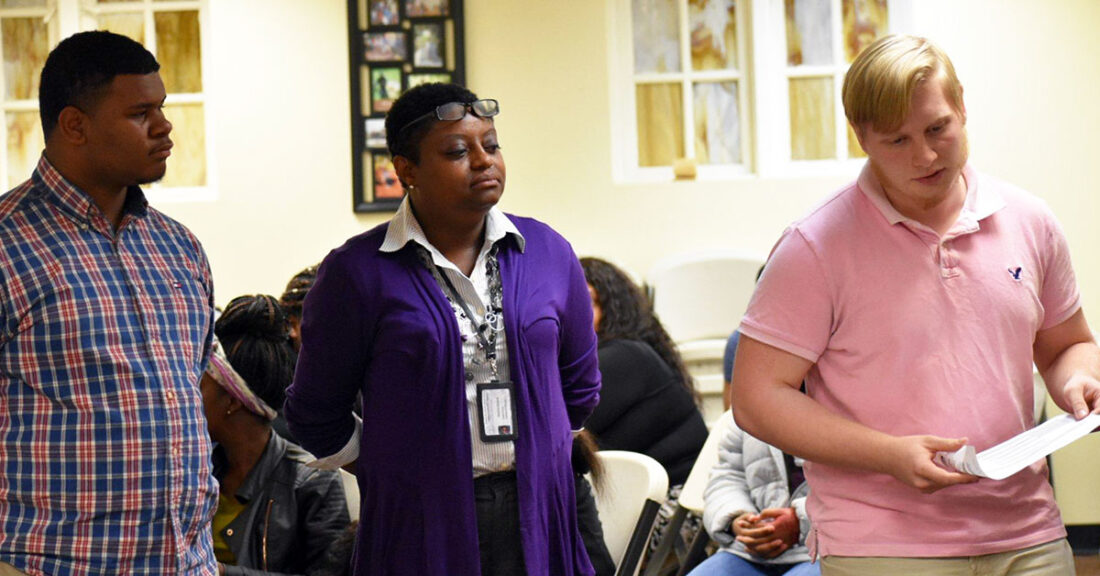Town Halls in Georgia Show the Needs of Youth in Foster Care

Photo provided by Georgia EmpowerMEnt
Since 2016, Multi-Agency Alliance for Children (MAAC) in Georgia — one of the Annie E. Casey Foundation’s Jim Casey Youth Opportunities Initiative® sites — has partnered with the Division of Family and Children Services, the J.W. Fanning Institute for Leadership Development, community organizations and agencies to facilitate youth town halls with local youth who are or have been in foster care. The youth-led sessions also draw foster parents and staff from MAAC and DFCS.
The goal? Hear from people who have experienced the child welfare system as a way to guide improvement efforts.
And the approach appears to be working.
Surveys conducted at the sessions have helped to identify what youth care about most: connectedness, education and safe, stable housing. DFCS uses this information to inform policy and practice, including policy on extended foster care — which enables young people to remain in care past age 18 — with support for case planning, housing and connections with extended family members, peers and others as part of a lifelong support system. DFCS and partners are also working to incorporate other priorities into their case planning and practice, including support for LGBTQ youth and young parents.
The town halls, conceptualized by state officials, “were really designed as a public-private-community partnership,” says Sarah Bess Hudson, the lead facilitator at MAAC. “Stakeholders across the state participated and were able to learn what the biggest priorities were for youth — from youth.”
An important partner in this effort is Georgia EmpowerMEnt, a leadership and advocacy initiative founded by and for Georgia youth in foster care, supported by MAAC.
“It’s critical that the people who can make a change hear directly from those who are most affected,” says Michael Fulcher, a regional impact liaison with EmpowerMEnt. “Youth raise concerns that many staff are not aware of. For example, I learned that bullying was a bigger issue in our region — and hearing that made me want to find more resources for kids who were struggling.”
Beyond helping to build a better child welfare system, the young people participating in the town halls also are gaining opportunities to sharpen their leadership and advocacy skills. The forum positions youth to serve as leaders of small group discussions, facilitators, timekeepers and presenters. At every step, the programming provides a platform for youth voices and experiences.
“If there was one thing that I could say to other youth who are invited to a town hall, it would be to attend one and speak up,” says Elizabeth, a youth facilitator who asked to be identified by her first name only. “This is the time for your voice to be heard.”





